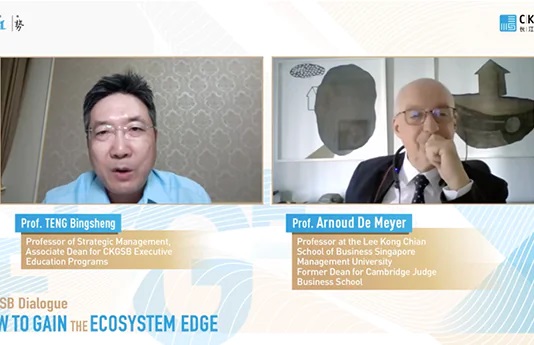Why the Germans, winners of the 2014 football World Cup, are so good at the other game the world cares about—business.
A football World Cup victory is always a cause for celebration for the winners—and a moment of somewhat pained reflection for the rest.
This year, the questioning may go beyond football. How is it that even as so many countries continue to experience economic results that look a little like the humiliations suffered by the Netherlands and Brazil this football season, Germany stays near the top of the economic league tables year after year?
- Third-biggest exporter in the world, after China and the US, producing $1.493 trillion exports, according to World Trade Organization figures, not so far from the US ($1.575 trillion), although the US has nearly four times as many people and much richer natural resources.
- 50% less unemployment than the average member of the Organization of Economic Cooperation and Development (OECD): 5% compared to 7.5%, according to OECD statistics
- …And with near-zero deficit spending, compared to 3.9% of the gross domestic product (GDP) that is typical of the other rich OECD countries.
The easiest answer is hard work, but it’s not especially true. Germans may have a reputation for hard work, but according to data from the OECD, they are hardly workaholics. Germans worked an average of 1,388 hours in 2013 compared to 1,489 in supposedly fun-loving France, 1,665 in Spain, and 1,788 in the US. That’s also a far cry from most industrial Asian countries, where the workers spend more than 2,000 on the clock, according to US Federal Reserve statistics.
Maybe they work smarter? Germans are more productive than most, but not all, of the world’s workers: the average German arbeiter contributes $60.40 to the GDP per hour, compared to $61.60 in France, $66.60 in the US, and a whopping $89 in Norway.
Nor do they have a lot of big companies. Germany contributes only 28 names on the Fortune Global 500—not as many as France (31), Japan (57), China (95), or the United States (128).
So how do they do it? No single factor seems to be responsible, but experts say that to be more like Germany, a country needs to know how to:
Innovate. In 2012, only South Korea, Japan and Switzerland filed more patents per million people than Germany, according to data published by the World Intellectual Property Organization, and only South Korea registered more industrial designs. “If you look at European patents, on a per capita basis, Germany has twice as many as France, four times as many as Italy, and twice as many as the UK,” says Hermann Simon, founder and Chairman of Simon-Kucher & Partners Strategy & Marketing Consultants, a global consultancy based in Bonn.
Bend. Many economists credit Helmut Kohl, the former Chancellor, with a good deal of credit for Germany’s current prosperity.
“When you go back 10 years, Germany was called the sick man of Europe because we had quite low growth rates and high unemployment,” says Henning Klodt, head of the economic policy center at the Kiel Institute for the World Economy.Kohl liberalized Germany’s labor laws, changing the unemployed benefits structure so it put more pressure on the unemployed to accept any job on offer.
This and the lack of a minimum wage cut unemployment among the least qualified workers, but it also led to 10 years of stagnant wages, according to Klodt, slowing domestic growth even as it made German goods more price-competitive on the export market.
Cooperate. Historically, Germany has tended to suffer less labor strife than some of its neighbors. One frequently cited reason is the worker’s council, a feature of German corporations that gives workers a way to communicate with management in a less adversarial way than is typical of European labor relations.
A different kind of cooperation has been important as well, in its role as a member of the Eurozone. Klodt argues that the economic disaster in southern Europe has weakened the common currency, making German goods more cost-competitive than they would have been under the Deutschmark.
Ingratiate. One sign of just how vital immigrants have become to what is otherwise a graying country: five of the 11 players on Germany’s team this year are either immigrants or the children of immigrants.Germany is now the second-largest destination for permanent migration in the world, right after the US, according to the OECD. Nineteen percent of the German population—more than 15.7 million people—have an immigrant background, according to German government statistics. There may not be a Statue of Liberty in Hamburg’s harbor yet, but an open door is an increasingly important part of Germany’s economic formula.
Nor does the friendliness end at the border. Most major economies spend about double on defense as Germany, which has been barred from having more than a self-defense force since the end of World War II. In 2013, for instance, Germany spent 1.4% of its GDP on defense, compared to 2.3% for the UK, 2.4% for France, and 3.8% for the US, according to the Stockholm International Peace Research Institute.
This leaves a lot more money available for more productive investments. While defense spending can have an impact on certain kinds of technological innovation, other scholars have found that defense spending is less economically useful than private sector investment. One 2013 George Mason University study, for example, estimated that every dollar cut from the US defense budget typically yields at least $1.3 additional private sector dollars over time.
Think small. “We don’t have companies which are comparable to Apple or Google. We don’t have these individual stars,” Simon says. Instead, like Germany’s football team, the economy depends on a team of less-than-well known players. Arguably, the most successful class of companies in Germany are the companies Simon has christened the “Hidden Champions”—the Mittelstand or group of mid-sized companies—profitable mid-sized companies that have built strong global niches for themselves. These privately-owned, mid-sized companies are managed for the long-haul by owners who have the freedom to think not about the next quarter, but the next decade.
This preference for small fortunes extends within the company as well. Technical occupations remain highly respected, German economists say. Unlike the US, for example, training for a technical career is not looked down upon. More voices are heard as well: some people who have worked both in Anglo-American and German companies say the latter tend to be more bureaucratic but also more inclusive in their decision-making.
The result is an economy that, at least for now, is perhaps less stratified by a star system than in an American-style executive suite. The “one-percent” may be on the rise in many countries, but income inequality has not risen since 2004, according to the OECD.
The aversion to superstars may be true of the country as a whole as well. Most major European countries have one economically significant capital and a number of less significant cities, but Germany is an exception, having been broken up into 19 monarchies and three republics until 1871, says Simon.
This historic circumstance helped promote the development of a number of distinct economic clusters, many of which remain important today. In the Black Forest region, for instance, clock-making skills that have endured now for hundreds of years are being re-expressed in the development of precision instruments, and the region is now home to more than 450 medical technology companies, says Simon.
Nor does this tendency seem to be going away, despite the reunification of East and West Germany in 1989: Berlin may be the capital of the government, but Munich is the capital of technology, Dusseldorf of advertising, Hamburg of media, and Frankfurt of finance. “Among the larger countries, Germany is by far the most decentralized, and I consider that an advantage compared to concentrating all the intelligence and elites in one big city,” Simon says.
But paradoxically, thinking small also meant thinking big: this early fragmentation also meant that anyone who wanted to go beyond his small state was by definition an international businessman. “Everybody who wanted to grow beyond his small state had to be an international business…I think that is part of the DNA today of Germany’s entrepreneurs,” Simon says.
The Right Model Now?
Whether the German model is the right one to emulate now is another story.
Not every year is a championship year, and Klodt is not so sure that if as forecast Germany transforms into a service economy, it will be able to innovate in quite the same way as it has as an industrial economy. “Innovations in services are very different. You know the saying that you can’t increase productivity at the symphony by playing at double speed with half the people,” he says.
Arne Pohlman, Chief Economist and Managing Director at FocusEconomics, a Barcelona-based economic forecasting company, is also skeptical that Germany will stay at the top for long.
“Being German, I believe that there is not so much that other countries can learn from Germany. Currently, all is going well for the country but that has not always been the case and in many fields Germany has lost its innovative power (there is not a single internet company worth mentioning) and its competitive edge,” he writes in an email.
Nor is Germany’s Mittelstand, an easy sector to copy. Its “existence is very deeply rooted in German culture and difficult, if not impossible, to replicate,” Pohlman writes. “The so-called hidden champions continue to drive innovation in their traditional fields of expertise but little new beyond that is emerging in the country.”
For now, the celebration continues, but if German companies continue to win, it will likely be because they continue to show the qualities as Germany’s coach Joachim “Jogi” Löw looks for in his players: “What matters to me is: who’s able to adapt quickly? Only players who are able to learn are good players.”




















